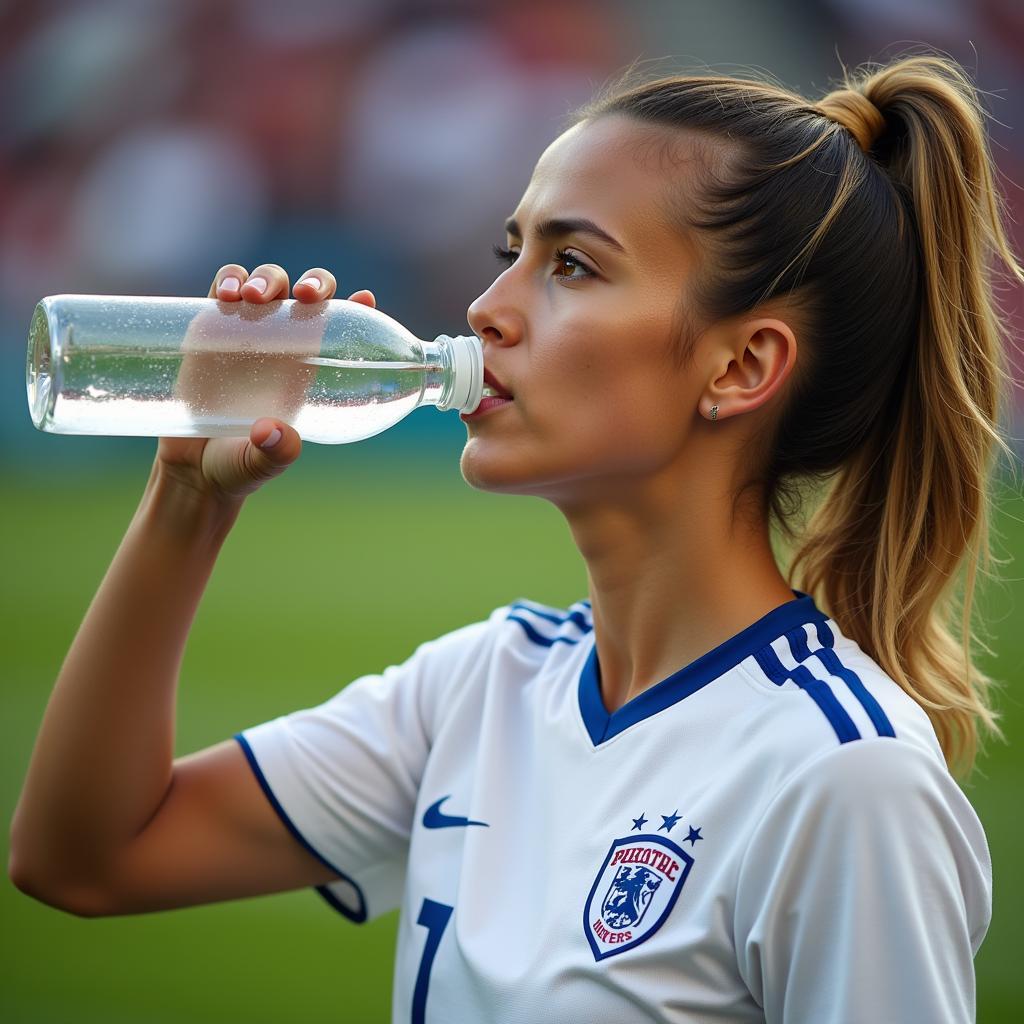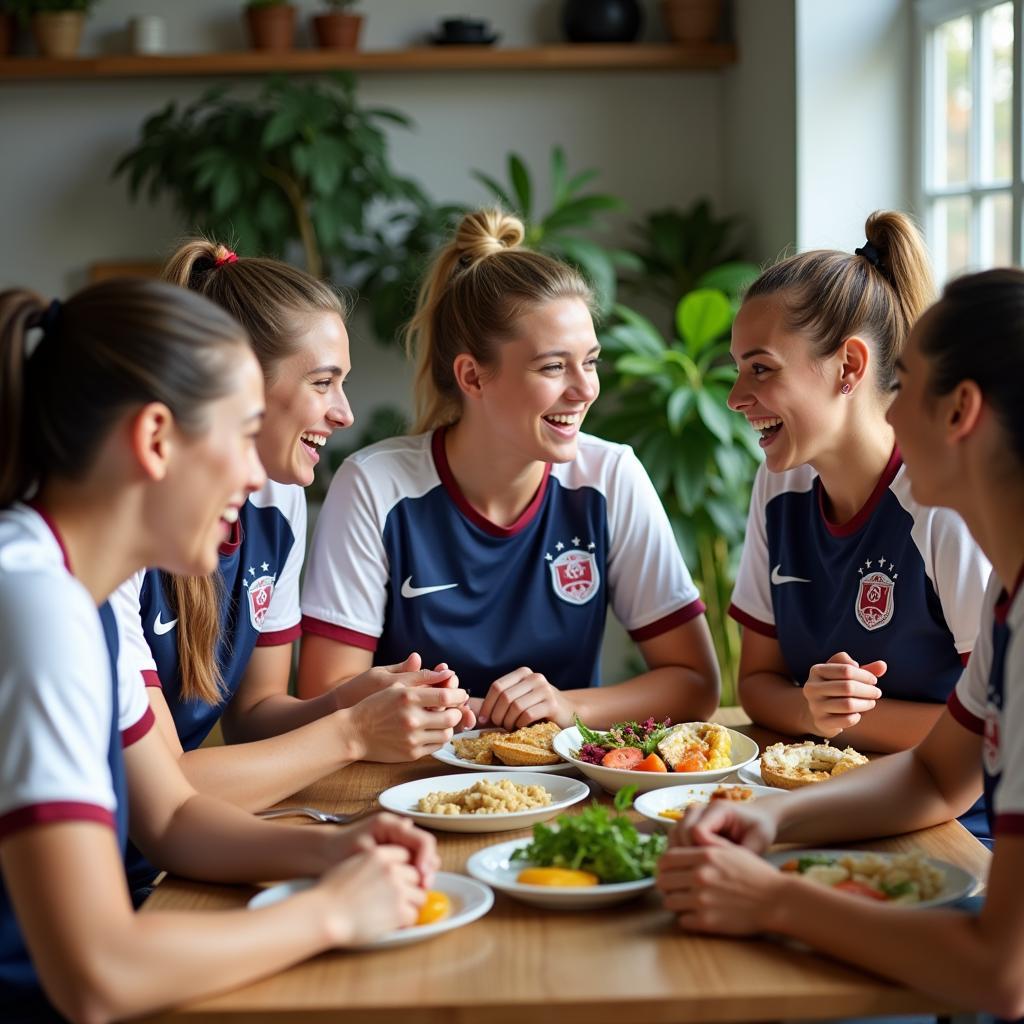The Winning Diet: Fueling Performance in Women’s Soccer
October 21, 2024The physical demands of professional soccer require athletes to pay close attention to their diet. This is especially true for women, who face unique physiological needs. A carefully crafted diet for female soccer players is about more than just calorie counting; it’s about optimizing nutrient intake to support peak performance on the field.
The Nutritional Building Blocks for Success
To understand how to fuel for success in women’s soccer, let’s break down the key nutrients and their roles:
- Carbohydrates: These are your primary energy source. Prioritize complex carbs like brown rice, quinoa, and whole-grain bread for sustained energy release.
- Protein: Crucial for muscle repair and growth, protein is essential for recovery after intense training sessions. Lean meats, fish, beans, and lentils are excellent sources.
- Healthy Fats: Don’t fear fats! Unsaturated fats found in avocados, nuts, and olive oil support hormone production and provide long-term energy.
- Vitamins and Minerals: Iron is particularly vital for female athletes due to blood loss during menstruation. A diet rich in fruits, vegetables, and fortified foods helps maintain adequate iron levels.
 Female Soccer Player Hydrating
Female Soccer Player Hydrating
Timing is Everything: Pre-Game, During, and Post-Match Nutrition
- Pre-Game (2-3 hours before): Focus on easily digestible carbohydrates and a moderate amount of protein. Oatmeal with berries and a handful of nuts is a good option.
- During the Match: Staying hydrated is key. Electrolyte drinks and small, easily digestible snacks like bananas or energy gels can help replenish energy stores.
- Post-Game (within 30-60 minutes): This is prime time for recovery. A protein shake with a source of carbohydrates, like a banana, helps kickstart muscle repair and replenish glycogen stores.
Common Nutritional Challenges for Female Soccer Players
- Iron Deficiency: Menstruation can lead to iron loss, impacting energy levels and performance.
- Low Energy Availability: Not consuming enough calories to support training demands can lead to fatigue, injuries, and hormonal imbalances.
- Disordered Eating: The pressure to maintain a certain physique can put some athletes at risk for eating disorders.
 Female Soccer Team Enjoying a Meal
Female Soccer Team Enjoying a Meal
“It’s important to remember that everyone’s nutritional needs are different,” says Dr. Sarah Jones, a sports nutritionist who has worked extensively with elite female athletes. “Factors like age, training intensity, and body composition all play a role in determining the optimal diet.”
Fueling for the Future: A Holistic Approach
A winning diet in women’s soccer is about more than just what’s on your plate. It’s about:
- Education: Understanding your individual nutritional needs.
- Planning: Creating a meal plan that supports your training schedule.
- Hydration: Making water your go-to beverage.
- Recovery: Prioritizing rest and sleep alongside proper nutrition.
- Seeking Professional Guidance: Consulting with a registered dietitian or sports nutritionist for personalized advice.
By focusing on these key principles, female soccer players can optimize their performance and reach their full athletic potential.